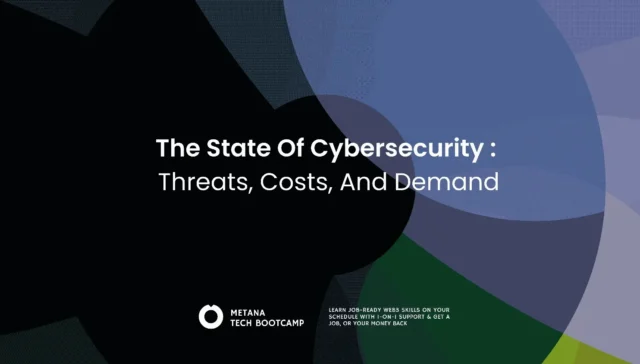If you’re preparing for a UX Designer interview or looking to hire someone for the role, it’s important to understand the fundamentals of UX design, the skills required, and what kind of questions you might face. Let’s break it all down!
Top Interview Questions for UX Designers
Let’s first dive into some common interview questions you might face—and how to prepare for them. Later on, we shall look at some basic knowledge for what user experience design is and basic skill you would need to acquire.
1. What are some of the biggest trends in UX Design right now?
What they’re looking for: They want to know if you’re passionate and knowledgeable about the field.
How to prepare: Talk about the latest trends like designing for accessibility, voice interfaces, or AI-driven UX. Mention how you keep up with industry trends—reading UX blogs, listening to podcasts, or attending webinars.
They can also ask “what’s the next big trend in UX?” or “what excites you about UX design today?”
2. Where do you find inspiration for your designs?
What they’re looking for: Are you passionate about design and always learning?
How to prepare: Mention design books, podcasts, or specific designers you admire. Show that you’re engaged with the design community and always looking to grow.
Similar questions could be “what inspires your work?” or “how do you stay current in the UX field?”
3. When a client says, “I don’t like this design,” how do you respond?
What they’re looking for: How do you handle feedback? Are you open-minded and solution-oriented?
How to prepare: A good designer doesn’t take criticism personally. Instead, they ask follow-up questions to understand the root of the problem and make adjustments based on solid reasoning, such as user research or design principles.
4. What are the biggest challenges you face as a UX designer?
What they’re looking for: Can you identify common challenges and handle them professionally?
How to prepare: Be honest about challenges like justifying design decisions to stakeholders or conducting user research remotely. Emphasize how you overcome these challenges with creative solutions.
Other forms of this question could be “Can you share a time when you faced a challenge in a design project and how you solved it?” or “How do you handle design disagreements with other team members?”
5. Tell me about your most/least successful UX design project.
What they’re looking for: They want to understand your strengths and areas of growth.
How to prepare: Be prepared to talk about a project you’re proud of, explaining why it was successful. If asked about a less successful project, focus on what you learned and how you’d approach it differently next time.
6. Do you have any questions for us?
What they’re looking for: This is your chance to show interest in the company and the role.
How to prepare: Ask thoughtful questions like:
- How does the design team collaborate with other departments?
- What’s the company’s approach to user feedback?
- What tools do you use for user research?
So now that we have the questions covered up, let us move onto the basics!
What is UX Design?
User Experience (UX) design is all about making sure that users have a positive interaction with a product. It’s not just about how a product looks; it’s about how easy and enjoyable it is to use.
Example: Think about how simple it is to buy something online. The easier and more intuitive the process, the better the UX design.
The goal of UX design is to create experiences that are easy to use, efficient, and relevant—all while making sure users enjoy the process.
What Does a UX Designer Do?
A UX Designer ensures that a product is not only usable but also user-friendly. They work with product teams from the very start, ensuring the product is aligned with users’ needs, pain points, and goals.
Key activities for a UX Designer include:
- Conducting user research
- Designing wireframes and prototypes
- Iterating on designs based on user feedback
Key Skills Every UX Designer Needs
To be a successful UX Designer, here are some essential skills you should focus on:

1. User Research
Understanding your users’ behavior, motivations, and needs is the foundation of great UX design. Whether it’s through surveys, interviews, or analytics, research helps designers make informed decisions that solve real user problems.
2. Collaborative Skills
UX designers often work closely with other teams—such as developers, product managers, and stakeholders. Good collaboration and communication ensures that the final design aligns with both user needs and business goals.
3. Wireframing & Prototyping
Wireframes and prototypes allow designers to test their ideas before the final product is built. So it is best to learn how to create low and high-fidelity wireframes and prototypes to gather user feedback early and catch flaws early.
4. Visual Communication
Visual elements like layout, typography, and color play a huge role in how users interact with a product. It is best if UX designers understand design principles to effectively communicate ideas through prototypes and mockups.
5. User Empathy
UX design should always put the user at the center. Understanding user needs, frustrations, and motivations helps build meaningful experiences. You can build empathy with your users through research, observation, and active listening.
Conclusion
Being a UX designer involves much more than just creating beautiful visuals. It’s about understanding your users, working well with others, and solving problems in a meaningful way. By preparing for these interview questions and focusing on core skills like user research, wireframing, and empathy, you’ll be well-equipped to ace your next UX design interview.
Whether you’re an aspiring designer or a hiring manager, this guide will help you approach the interview process with confidence and clarity.







